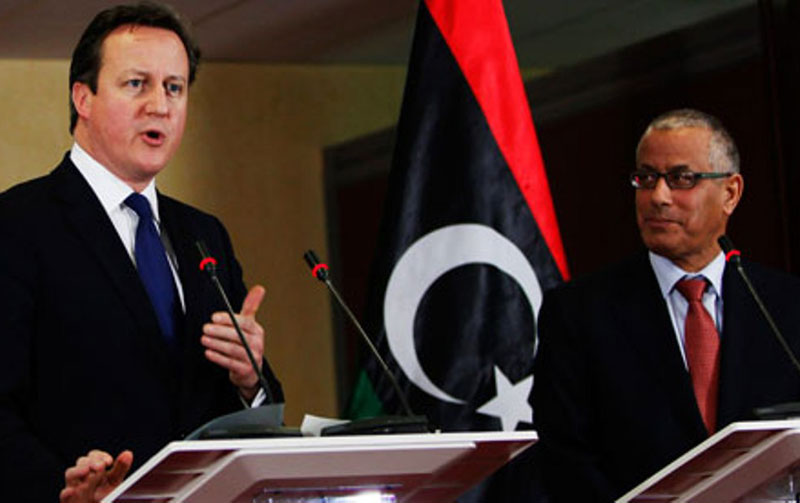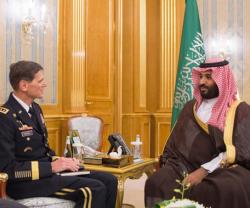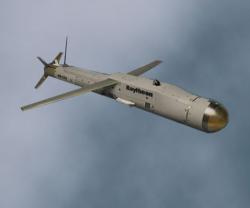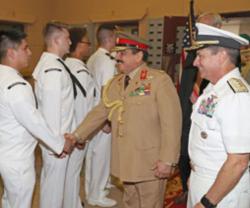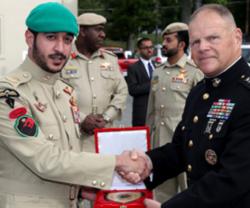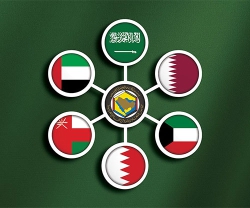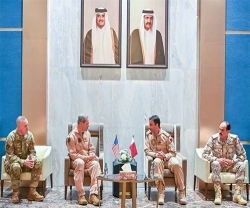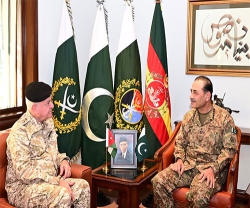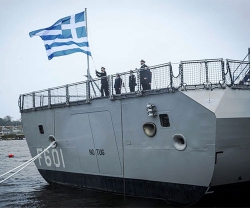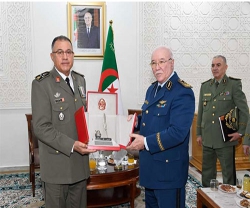British Prime Minister David Cameron used a surprise visit to Tripoli on Thursday to pledge Britain’s help in training Libya’s Security Forces, part of broader European efforts to counter Islamic militancy in North Africa.
In Brussels, European Union Foreign Ministers approved the outline of a mission to help Libyan authorities tighten border security to combat arms-smuggling and stop militants crossing the border. The training and advisory mission is expected to involve about 70 civilian experts and to be launched by summer.
Concern over security in the vast tracts of the Sahara has grown after Islamic militants seized hostages earlier this month at Algeria’s In Amenas gas plant. Up to 37 foreigners died after troops stormed the complex to end the hostage crisis, which saw the killing of 29 hostage-takers.
Cameron flew into Tripoli from Algiers, where he also pledged to cooperate on security and intelligence. In the Libyan capital he visited a police training academy and Martyrs’ Square. He has called North Africa and the Sahel a “magnet for jihadists” and warned of a “generational struggle” against them.
However, he has shied away from a major military response and instead espoused empowering regional governments to take the lead in security and bolstering the rule of law and democratic institutions.
“There is no true freedom and no true democracy, without security and stability as well. We are committed to helping with that both here and also in your neighborhood,” Cameron said at a news conference with Libyan Prime Minister Ali Zeidan.
“We’ve agreed a package of additional help from Britain to Libya - increasing the military training we are providing, increasing the police advisers ... We’ve also discussed how we can help build the institutional capacity of the new Libyan government,” he added.
Cameron last visited Libya in 2011 along with then French President Nicolas Sarkozy after rebels ousted former Libyan leader Muammar Qaddafi with French, British and U.S. backing. At the time he called Benghazi, the cradle of the uprising against Qaddafi, an “inspiration to the world”.
Since then, Libya’s second city has been disrupted by violence and become a base for Islamist militant groups. Last September an attack on the U.S. diplomatic mission killed the U.S. ambassador to Libya and three other Americans.
In January, Britain urged its citizens to evacuate the city, citing a “specific, imminent” threat, irking Libyan officials keen to attract foreign money and expertise after decades of under-investment during Qaddafi’s rule.
Cameron highlighted the two countries’ shared interest in boosting security in Libya. He cited cooperation on investigations into the 1988 Lockerbie airplane bombing and the 1984 shooting of police officer Yvonne Fletcher outside the Libyan Embassy in London.
Source: Reuters

